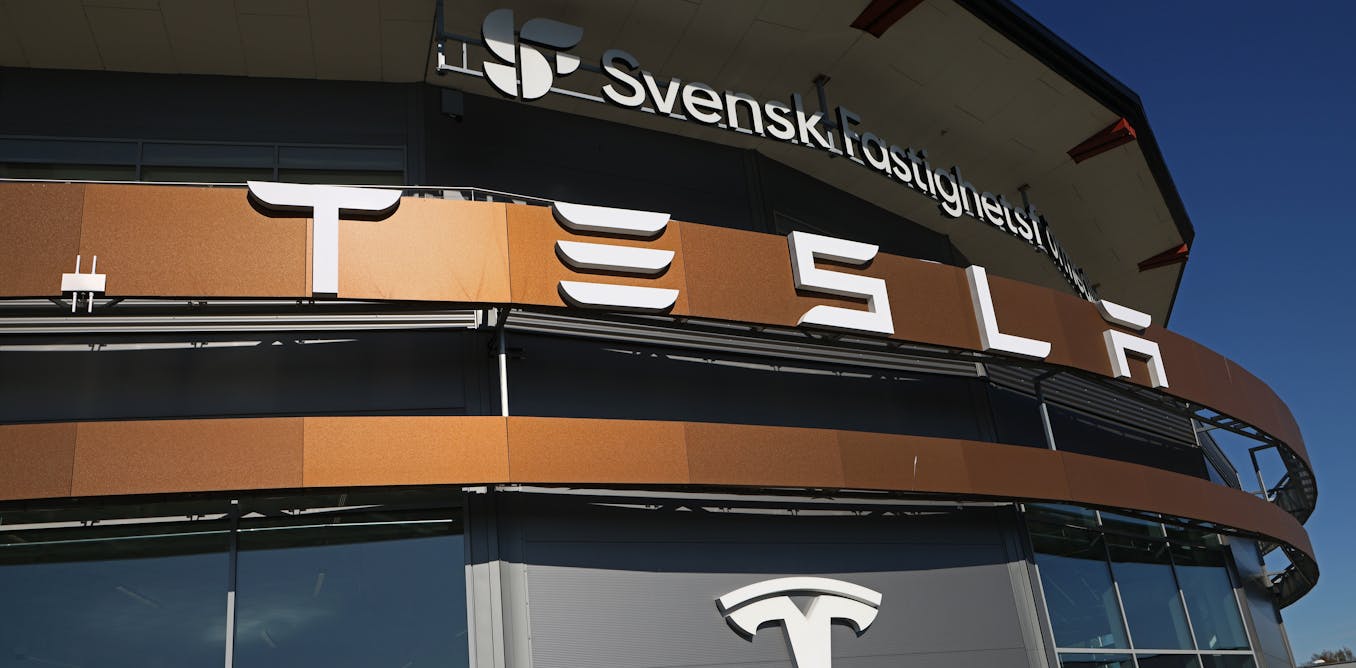For the previous two years, Tesla has A bitter controversy Within the case of metallic, it’s with the Swedish labor union. This can be a scale that unions haven’t seen because the Thirties.
On the coronary heart of the battle is Tesla’s refusal to signal a collective bargaining settlement. That is the pillar of “Swedish mannequin” of labor relations extremely regarded by Swedish residents due to their recognition of their contributions to social well being and shared prosperity.
As an alternative, Tesla selected to keep away from strike union staff and produce the automobile into the nation Non-union work and labor From neighboring nations. Tesla’s actions undermining the system that Sweden strongly helps is what we name “anti-social.” In different phrases, they might be stated to undermine democratic norms and the broader public curiosity.
Extra broadly, it isn’t unusual to see companies behave in ways in which negatively have an effect on public curiosity because of the results of environmental degradation, poor working circumstances, and antitrust violations. Multinationals typically seem within the information as they work behind the scenes to violate or keep away from authorities laws and affect laws behind the scenes.
Amongst many examples Volkswagen Group “Dieselgate” emissions scandal. The German automaker tricked the car into testing in order that diesel vehicles look like much less pollutant than they really are. The corporate later admitted it It was “humorous” and broke the belief of its prospects.
And though oil and gasoline large Exxon is believed to have had proof within the Nineteen Seventies that fossil fuels contribute to local weather change, False info marketing campaign To curb product laws. (In 2021, Exxon CEO Darren Woods stated American politicians The corporate “would not unfold disinformation about local weather change.”
These examples elevate the query of why companies interact in actions that oppose the general public curiosity. Nonetheless, if you browse the usual textbooks utilized in college enterprise and administration programs, you’ve a tough time discovering the reply.
As an alternative, for many years, the usual perspective has been that multinationals are financial organizations which might be primarily not significantly involved with doing hurt or good. Anti-social company conduct is normally chalked by some “dangerous apples.”
The truth that companies have political energy and socially worthwhile, and that society systematically makes use of it in a manner that most individuals have been excluded from the images.
Our current analysis The basic nature of the worldwide economic system reveals which firms can affect and behave antisocially. Below sure circumstances, firms like Tesla might face threats that undermine market place, belongings, and even their existence.
For instance, if metallic poses a serious risk to Tesla’s enterprise mannequin. If Swedish commerce unions win this battle, it might strengthen the negotiating place of commerce unions throughout Europe. On this case, firms like Tesla are capable of shield themselves. Nonetheless, this typically has adverse penalties for society.
That is known as the “self-preservation perspective” of multinational firms. It illuminates the way in which companies make the most of political energy for his or her profit.
Steadiness of energy
The self-preservation perspective helps individuals perceive how company political energy needs to be challenged by way of each regulation and exercise. Commerce union actions, for instance, can act as a strong political pressure that balances company energy.
The thought of “self-preservation” comes from Worldwide Relations Concept and Neglected dialogue By the late Harvard Economist John Kenneth Galbraith These counsel that organizations, nation-states or multinational companies, will primarily search to keep up themselves within the face of threats.
We apply the concept of self-preservation to trendy multinational firms in search of to outlive in a worldwide economic system characterised by intense competitors and sophisticated laws.
This attitude predicts that multinationals will weigh 4 strategic choices when confronted with regulatory threats.
First, it might typically try to affect laws by way of ethically questionable political actions. Second, we might take into account avoiding or ignoring laws by exploiting loopholes or taking strategic authorized motion. Third, you may resolve to observe laws. And at last, it may be thought of leaving the market altogether.
We predict that an organization’s alternative will rely upon the relative stage of political energy and assets, and the profitability of the markets it operates. But it surely is dependent upon how sturdy it’s in relation to governments, commerce unions and non-governmental organizations (NGOs).
SGM/ShutterStock
If authorities enforcement or social strain may be very sturdy, this might result in firms adapting to laws slightly than avoiding extra adverse penalties or actions. One instance is Apple’s current adjustments European App Retailer Guidelinescomplies with the European Union’s digital market legal guidelines.
Within the case of the Tesla vs. Swedish Union, Tesla exerted its energy to keep away from restrictions. In doing so, it took under consideration the dimensions of the risk to the enterprise mannequin throughout Europe and its perceived energy in comparison with commerce unions. This most likely comes from a Tesla factor Robust tie Employees’ union engagement is commonly seen as an pointless risk to innovation.
If Tesla’s evasion technique is profitable, it successfully resolves the Swedish mannequin and creates a system that’s much less secure for staff. From our self-preservation perspective, when Metall’s success in battle is dependent upon how broad, broad, and broadly, on how broadly, and on how broadly dependent the unions, governments and residents. By balancing company energy on this manner, society might want to shield its income from the ability of multinational giants.
Get information instantly in your inbox from actual specialists. Join our every day e-newsletter Obtain all the most recent protection of British information and analysis, from politics and enterprise to arts and science.


